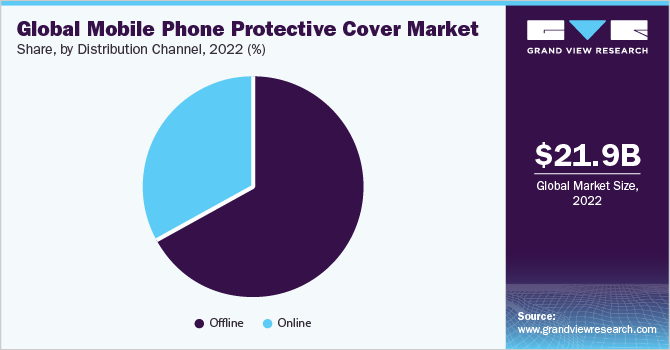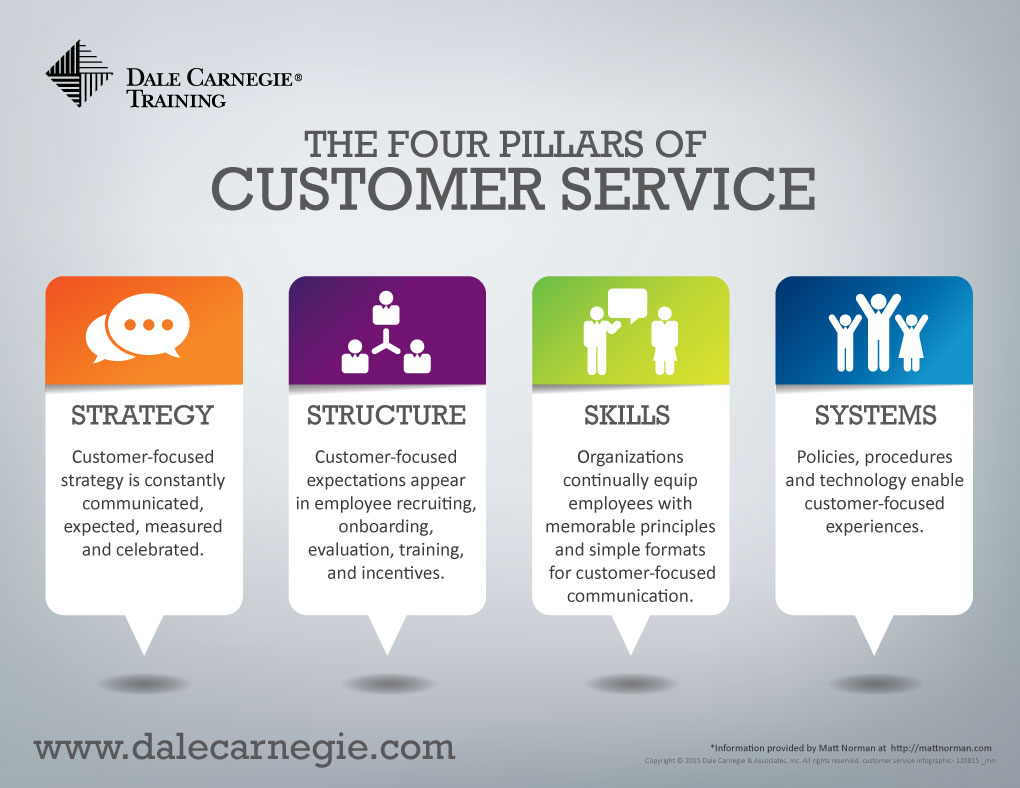The global phone case market value reached $21.89 billion in 2022, growing at a CAGR of 8.3% from 2023 to 2030. The market is being driven by increasing demand for protective and fashionable phone cases as consumers invest more in premium smartphones. In addition, the growing trend of personalization has led to consumers purchasing custom phone cases to showcase their unique style.

Launching a phone case startup allows entrepreneurs to tap into this high-growth market. Focusing your offerings on a specific target demographic and investing in quality, stylish designs can help you stand out. As more consumers upgrade devices, there will be increased opportunities for recurring and add-on sales.
This guide will walk you through how to start a phone case business. Topics include market research, competitive analysis, customer focus, registering an EIN, obtaining business research, and forming a legal business entity.
1. Conduct Phone Case Market Research
Market research is important to any new phone case business. Research offers insight into your target market, local market saturation, and trends in products and services. If you’re wondering how to start phone case business planning, market research is the first step.

Some details you’ll learn through market research on the custom phone case business market include:
- There is strong potential to target female consumers, who tend to replace phone cases more frequently than males.
- Over 50% of the market’s revenue comes from the 15-25 age demographic. Parents often buy their kids a mobile phone and present it as a gift for the holidays or birthdays.
- Partnering with influencers and using social media helps reach this engaged, style-conscious audience.
- The most lucrative product segments are designer, fashion, slim, rugged, and functional phone cases.
- Consumers are willing to pay premium prices for cases that make a style statement or offer maximum protection. Popular brands can charge over $60 per case.
- E-commerce presents an immense sales opportunity as more shopping moves online.
- Selling via your e-commerce site or third-party marketplaces helps maximize reach.
With strong industry growth projections, various product and pricing opportunities, high online demand, and a style-focused target demographic, your own phone case business has immense potential in this multi-billion dollar global market.
2. Analyze the Competition
When launching a phone case startup, it’s crucial to analyze your competitive landscape across both brick-and-mortar and online retailers. This involves identifying market leaders and sales data to see what other businesses sell phone cases in the area.

For physical retailers, visit competitors in your target region to analyze product selection, pricing, promotions, and overall branding. Document insights across factors like store design, staff knowledge, and upselling opportunities. Assess foot traffic numbers to estimate sales potential.
To gauge online competitors, install e-commerce tracking tools like Jungle Scout. Search Amazon Best Sellers and Google Shopping to see top phone case products and customer reviews. Examine competitors’ social media followings, online promotions, and influencer partnerships for benchmarks.
Analyzing cost structures helps you price competitively and run scenarios on profit potential. Factor in costs like materials (plastic, vinyl, etc.), labor, shipping, and platform fees.
By researching physical and digital competitors in-depth, you gain crucial intelligence to position your differentiation and carve out a niche in the growing phone case industry. A successful phone case business will grow more by understanding the competition.
3. Costs to Start a Phone Case Business
Starting a phone case business requires a significant upfront investment. Even selling phone cases online requires some expenses to get up and running before generating revenue. Key start-up costs include:
Start-up Costs
Product Design & Sourcing
- Hiring a product designer to create original case designs or licensing popular branded cases costs $2,000-$5,000 upfront.
- Producing an initial inventory batch overseas requires a 30-50% deposit to manufacturers, around $5,000 for 1,000 units.
E-commerce Platform Fees
- Building an independent online store through Shopify costs $29-$299 per month for software, domain, and payment processing.
- Selling on Amazon Marketplace requires a $40 monthly subscription plus 15% sales commissions.
Equipment & Supply Costs
- Packaging materials like bubble mailers ($250) and shipping labels ($75) are needed upfront.
- A label printer ($200), cameras ($400) and photo editing software ($10/month) help create professional product images.
- A laptop ($1,000) and phone ($500) support daily business operations.
Legal & Administration
- Business license and incorporation fees cost around $100-$500 depending on location.
- Accounting services can be up to $5,000 a year but less with software like QuickBooks ($10/month).
- Trademark registration ensures other sellers can’t copy original case designs ($275 per mark).
With an estimated $15,000 in start-up costs, it’s vital to secure business financing through sources like small business loans, crowdfunding platforms, and personal savings.
Ongoing Costs
Every month, key costs include:
- Ordering new phone case inventory in bulk every 2-3 months will require 30-50% deposits of around $5,000. Full production payments are made once goods ship from overseas.
- Software subscriptions for e-commerce, accounting/POS, and design tools average $100/month.
- Digital advertising budgets average $500/month for platforms like Google Ads and Facebook Ads to drive site traffic and sales. Influencers may also require up to $1,000 per sponsored post.
- An in-house designer to create new case designs costs approximately $4,000/month. Outsourcing custom designs is cheaper at around $100 per case design.
- 1-2 part-time customer service reps to manage online orders, returns/exchanges cost $15/hr or $2,000-$4,000 per month.
- Merchant processing fees on credit card transactions range from 2-4% of total online sales revenue.
Annually, expenses like taxes, insurance, and regulatory fees should also be accounted for:
- General business insurance costs around $1,000 per year. Product liability insurance helps cover design defects lawsuits.
- State sales tax needs to be filed quarterly if over the revenue threshold. Federal corporate taxes are also due yearly.
- Maintaining business licenses and legal compliance requires help from professionals charging around $5,000 per year.
I’m happy to clarify or provide additional cost estimates related to launching a successful phone case e-commerce business. Please let me know if you need any other details!
4. Form a Legal Business Entity
When starting a phone case business, the legal structure you choose impacts taxes, liability protection, and ease of expansion over time. The main options—sole proprietorship, partnership, LLC, and corporation—all have pros and cons to weigh.
Sole Proprietorship
A sole proprietorship is the simplest and most affordable option, requiring little paperwork. However, the business owner is personally liable for all debts and legal claims. Any phone case product defects or injuries would directly impact your assets.
Partnership
Partnerships allow multiple owners to share control and split profits. But similar to sole proprietors, partners have unlimited personal liability for business activities. Disagreements between partners can also jeopardize operations.
Limited Liability Company (LLC)
Forming a limited liability company (LLC) helps shield personal assets from any legal claims or business debts. Only the finances of the LLC itself are at risk. LLCs allow entrepreneurs flexibility in structuring ownership stakes and expansion opportunities to potentially attract investors. The operating agreement outlines each member’s rights and responsibilities.
Corporation
Corporations also limit owner liability and permit the sale of company shares through stocks. However, incorporating requires extensive legal paperwork, shareholder meetings, company bylaws, and formal boards of directors. The ongoing legal and tax compliance for corporations is complex and costly for small businesses like phone case startups.
5. Register Your Business For Taxes
Whether structured as a sole proprietorship, partnership, or LLC, a phone case business needs to obtain an Employer Identification Number (EIN) from the IRS for tax and banking purposes.
An EIN serves as a business’s social security number used to open business bank accounts, apply for licenses and permits, file tax returns, and hire employees later on. Sole proprietors can use their SSN but should still consider getting an EIN to keep personal and business finances separate.
Apply for an EIN with the IRS. It only takes minutes and there is no fee to obtain one. The online application will request basic information about your business structure, ownership, and responsible parties. An EIN is typically provided immediately upon completing all required fields.
In addition to a federal EIN, phone case entrepreneurs must research their state and local requirements around sales tax permits, reseller certificates, and business licenses to legally operate. Fees range from $10 to over $100+ depending on location. Failing to register can result in penalties down the road.
Proper legal and tax registration ensures your phone case business complies with key regulations right from the start. Confirming these technical details may seem tedious but helps legitimize your company and prevents issues when trying to open business accounts.
6. Setup Your Accounting
Carefully managing finances is critical to make your phone case business profitable. Without organized record keeping, it’s impossible to accurately track profitability or make data-driven decisions. The right accounting processes also ensure full legal compliance.
Open a Business Bank Account
Begin by establishing dedicated business banking and credit card accounts to separate all company transactions from personal finances. Any revenue, inventory orders, advertising, or other expenses should flow through these accounts.
Accounting Software
QuickBooks accounting software easily connects to financial accounts to automatically import and categorize transactions. This eliminates manual data entry and the risk of errors. QuickBooks plans start at $7/month.
Hire an Accountant
Hiring an accountant provides expert guidance on setting up your financial workflows and tax strategy. Typical monthly services like bookkeeping, payroll, monthly reporting, and reconciling accounts cost around $200-$500 depending on complexity. Come tax season, accountants also prepare and file annual tax returns for approximately $700-$2,000.
Apply for a Business Credit Card
Get approved for a small business credit card to simplify tracking certain expenses without impacting cash flow. Business cards don’t use your credit score but banks will review your business plan and revenue potential. Credit limits usually start around $1,000 for new businesses.
7. Obtain Licenses and Permits
Beyond forming a proper legal business structure, phone case entrepreneurs must obtain certain licenses and permits. Find federal license information through the U.S. Small Business Administration. The SBA also offers a local search tool for state and city requirements.
With customized apparel, trademark registration is vital to protect original case designs from copycats. Federal trademarks legally prevent other sellers from using identical logos or graphics that could confuse customers. The process normally costs $225-$400 per trademark filing. Prior search ensures the mark is unique.
Phone case inventory is primarily manufactured abroad and imported. Sellers must obtain an Importer ID number from U.S. Customs via the automated system. There is no fee or lengthy application process to receive the number used on customs forms to ship products into the country legally.
State or county business licenses demonstrate legal compliance across all operations from finances to employment. Basic requirements for wholesalers/retailers include zoning permits ensuring a commercial location (if applicable), Board of Equalization registration for collecting sales tax, and a seller’s permit verifying reseller status rather than manufacturing.
8. Get Business Insurance
Business insurance is crucial protection for phone case companies against unexpected disasters, lawsuits, or other losses that could devastate small business finances. Being underinsured opens the door to massive out-of-pocket costs.
Without adequate coverage, just a few scenarios could force a phone case business to shut down:
- A defective charger cable causes a customer’s phone to explode, resulting in severe burns. The victim sues for $500k in medical damages.
- A pipe bursts in your small warehouse, destroying $100k of custom phone case inventory.
- Hackers access business software containing thousands of customer payment details. You must pay regulatory fines and legal expenses.
The right insurance helps hedge against scenarios that threaten business continuity. Core recommended policies include:
- General Liability – Protects against bodily injury, property damage, and personal injury claims up to policy limits, around $1M typically. Covers legal defense costs.
- Product Liability – Vital for any retail business selling physical goods. Provides coverage if a product directly causes bodily injury or property damage.
- Cyber Liability – Shields against hacks and data breaches. Includes legal defense, settlements, and regulatory fines.
To get insured, clearly document your business model, products, location, and other key details that insurers will request. Next, connect with an insurance broker who will shop plans from multiple providers to find the optimal coverage and pricing package for your phone case operations.
The broker simplifies applying for and managing business insurance plans annually as your needs evolve. Investing in robust protection gives added peace of mind to focus on daily sales and marketing rather than worrying about enterprise risk scenarios.
9. Create an Office Space
Securing workspace helps new phone case entrepreneurs collaborate with team members, hold inventory, and conduct daily operations. The optimal real estate depends on budget, location needs, and growth plans.
Home Office
A dedicated home office works initially for solopreneurs. Expect costs of $100-$200 for basic office furniture like desks, chairs, filing cabinets, and shelves from IKEA or thrift stores. Converting a spare bedroom or basement keeps things low-cost as you validate the business. However, limited space restricts inventory storage and team meetings.
Coworking Office
Coworking spaces like WeWork provide affordable, flexible office rentals with month-to-month agreements rather than lengthy leases. Gain access to conference rooms, printing, wifi, and other amenities helpful for meetings and administration needs. Hot desk passes start at around $300 monthly. Private offices cost over $500 per month but allow 24/7 access and room for some inventory storage.
Commercial Office
In the long term, securing dedicated commercial space may suit phone case owners aiming for steady growth. Expect to pay a security deposit equal to 2 months rent, then ongoing monthly rents of $1,000 depending on location and square footage needs. This facilitates buying inventory in larger bulk batches and hiring more staff without space constraints. However, the longer lease commitment increases financial risk.
10. Source Your Equipment
A phone case entrepreneur’s essential materials include product design software, inventory, packaging supplies, and office equipment for operations. Strategic sourcing saves money as you launch.
Buy New
When buying new, take advantage of tax deductions on eligible purchases for your small business. Ergonomic office furniture, laptops, printers, and other equipment can be claimed annually. Shop end-of-year sales for deals on cases for a new phone model. Expect costs of $1,000+ outfitting a basic office or workspace.
Buy Used
Alternatively, used equipment from individuals and wholesale liquidators cuts costs. Facebook Marketplace and Craigslist connect with local sellers offloading quality refurbished electronics and office furniture around 50% cheaper than new ones.
Rent
Renting equipment enables accessing higher-end gear like production machinery and design software without huge upfront payments. Online rental markets allow browsing inventory from multiple national rental companies starting around $50/week. No long-term commitments.
Lease
Leasing commits to using gear for 1-5 years in exchange for predictable monthly payments. Essential items like delivery vehicles, warehouses, and specialized equipment can be leased to conserve cash flow for inventory and marketing if you lack the capital to buy outright.
11. Establish Your Brand Assets
Strategically developing a distinct brand identity helps phone case companies cut through the cluttered mobile accessory space and connect with target buyers. A polished logo, web presence, and marketing collateral command credibility during those critical first impressions.
Get a Business Phone Number
A unique business phone line presents a professional impression for answering customer queries and fulfillment calls. Cloud-based systems like RingCentral make customizable toll-free and local numbers affordable starting at $30/month with easy call routing.
Design a Logo
Crafting an eye-catching logo encapsulates the personality of your phone case venture. Looka’s AI logo maker generates custom icons, monograms, and other stylized options to fit your vision ranging from $20-$65 to download final high-res files. Display the logo proudly on branded packaging, social channels, and storefronts.
Print Business Cards
Pair logo concepts with complementary business cards, letterheads, and signage available from convenient online print shops like Vistaprint. Keep cards on hand for in-person networking, tradeshows, and client meetings to spur referrals. Window and interior displays advertise store locations to pass foot traffic.
Get a Domain Name
Secure a domain name that easily comes to mind for customers searching for your emerging brand online. Check availability with Namecheap starting around $9/year for .com registrations and bundled private registration. Brainstorm short memorable dot coms with your core offerings and location if selling locally.
Design a Website
To sell phone cases online, you’ll need to design a user-friendly site, geared toward your target audience. Wix lets you build your site, featuring cases for all the top phone models you carry. Those less tech-savvy can utilize premade templates and then customize copy and images starting with free plans. Or hire skilled web developers from marketplaces like Fiverr to handle coding more complex custom designs.
12. Join Associations and Groups
Joining relevant local organizations and online communities facilitates networking opportunities for phone case entrepreneurs to gain insider knowledge, collaborators, and potential customers.
Local Associations
Local chambers of commerce like the Los Angeles Area Chamber of Commercehost workshops, mixers, and conferences centered around trends impacting LA startups and small businesses. Attending events puts you in the room with established local leaders, mentors, and vendors essential for expanding local visibility. Expect annual dues of around $500.
Local Meetups
Meetup conveniently aggregates professional gatherings, seminars, happy hours, and other networking events searchable by region and interest like small business ownership. Browse upcoming marketing, fashion, and e-commerce-focused meetups happening in your area to connect with like-minded entrepreneurs. Expect free or paid entry fees of up to $20 per Meetup.
Facebook Groups
Facebook communities create space for ongoing advice on the ups and downs of running an accessory e-commerce brand. Join groups like the Cell Phone Case group to browse extensive discussions around product ideas, manufacturing, and digital marketing tactics relevant to phone case sellers.
13. How to Market a Phone Case Business
Implementing an omnichannel marketing strategy is crucial for increasing awareness and sales as a new phone case brand. Your network and customer base represent the most powerful growth tools when starting.
Referral Marketing
Leveraging referrals incentivizes happy buyers to endorse products to friends for additional discounts or freebies. For example, offer a 20% off coupon code for every new customer referred. Feature testimonials across digital channels.
Digital Marketing
A targeted digital approach then amplifies reach and conversions online:
- Run Google Search and Facebook ads optimized to engage phone case shoppers in your region. Expect to invest at least $500 monthly in testing different creatives and demographics.
- Create Instagram and TikTok accounts showcasing products. Pay influencers in fashion and tech to promote offerings to their aligned followers.
- Upload phone case unboxings to YouTube along with video tutorials flaunting customization options.
Content Marketing
- Publish blog articles highlighting use cases, personalization tips, and pairing options tailored around your designs and key audiences.
- Optimize website copy focused on common buyer questions and objections around materials, custom options, and durability.
Community Building
- Interact regularly with new website visitors and past purchasers via chat, email, and text. Prioritize excellent customer service pre and post-purchase.
- Monitor conversations using relevant hashtags and branded keywords on social listening tools to jump into related conversations.
Traditional Marketing
Traditional approaches better support hyperlocal branding:
- Print brochures distributed at local fairs, retailers, and small businesses raise visibility around custom offerings.
- Sponsor booths at community and industry events or host pop-up shops to show products IRL.
- Invest in radio spots on popular regional stations describing the latest exclusive designs.
Experiment with a variety of digital and traditional channels to determine the optimal activities and messaging that deliver qualified traffic, leads, and sales over time. Reach out with any other phone case marketing questions!
14. Focus on the Customer
Providing exceptional service shapes positive brand perceptions and drives referral sales over time. Phone case buyers value convenient, personalized experiences when customizing and troubleshooting cases.

Respond promptly to pre-purchase questions on sizing, imagery options, and processing times through chat and email. Follow up with tracking info once orders ship.
Address defects or damage requests swiftly by sending replacement items at no charge to reassure customers. Include handwritten notes with shipments apologizing for inconveniences while solving issues.
Exceed expectations by surprising loyal repeat purchasers with discounts, freebies, and exclusive early access to new case launches.
Finally, listen closely to feedback and reviews. Use insights to improve website navigation, showcase top sellers upfront, and refine policies around exchanges to facilitate seamless experiences.
When customers feel genuinely appreciated and supported as individuals rather than transactions, this cultivates meaningful connections and brand affinity. Satisfied buyers actively endorse phone case companies they trust to friends interested in similar offerings via word-of-mouth and social shares.
There are no shortcuts when aiming to provide five-star experiences at every touchpoint throughout the buyer’s journey. The personal delicacy and responsiveness defined by living up to your customer service commitment compounds over time into invaluable goodwill and revenues.
